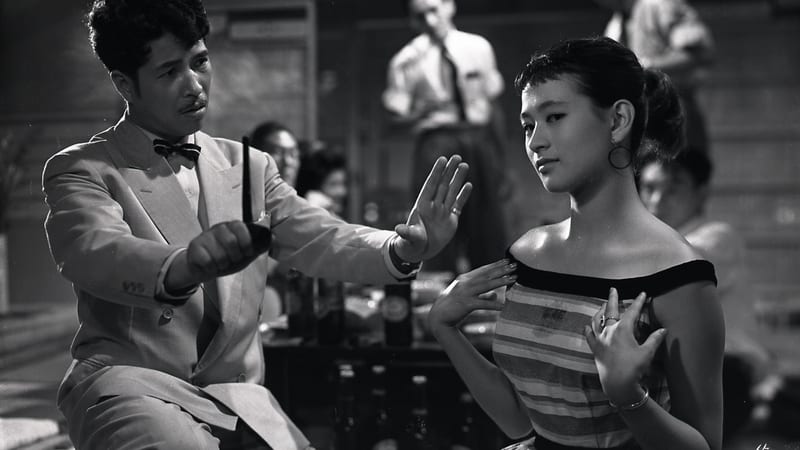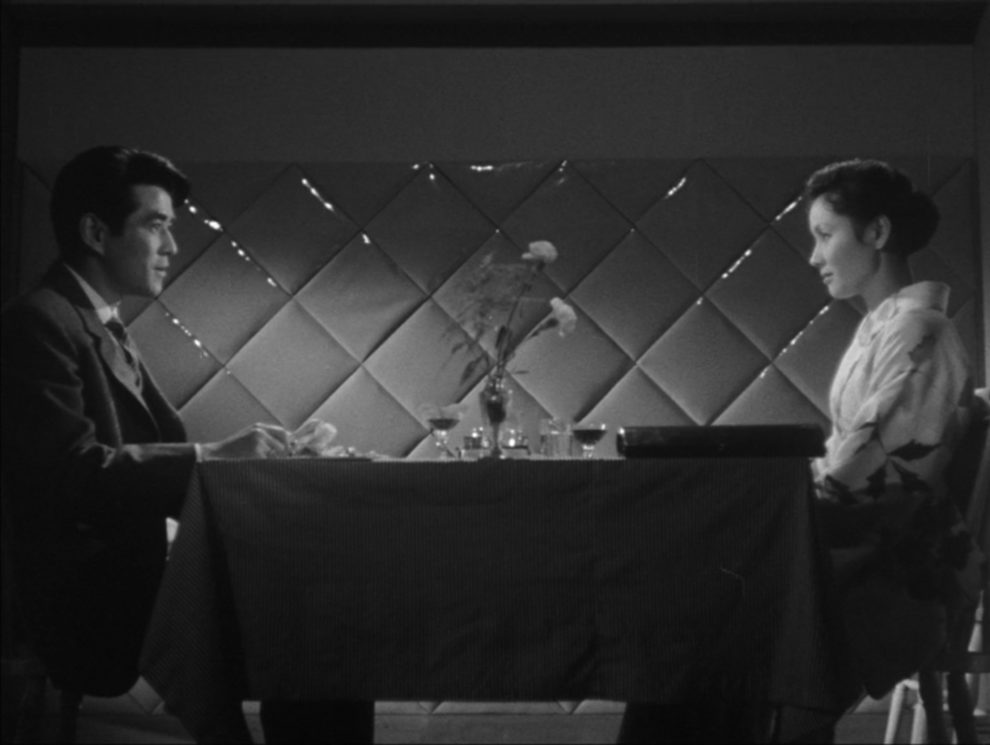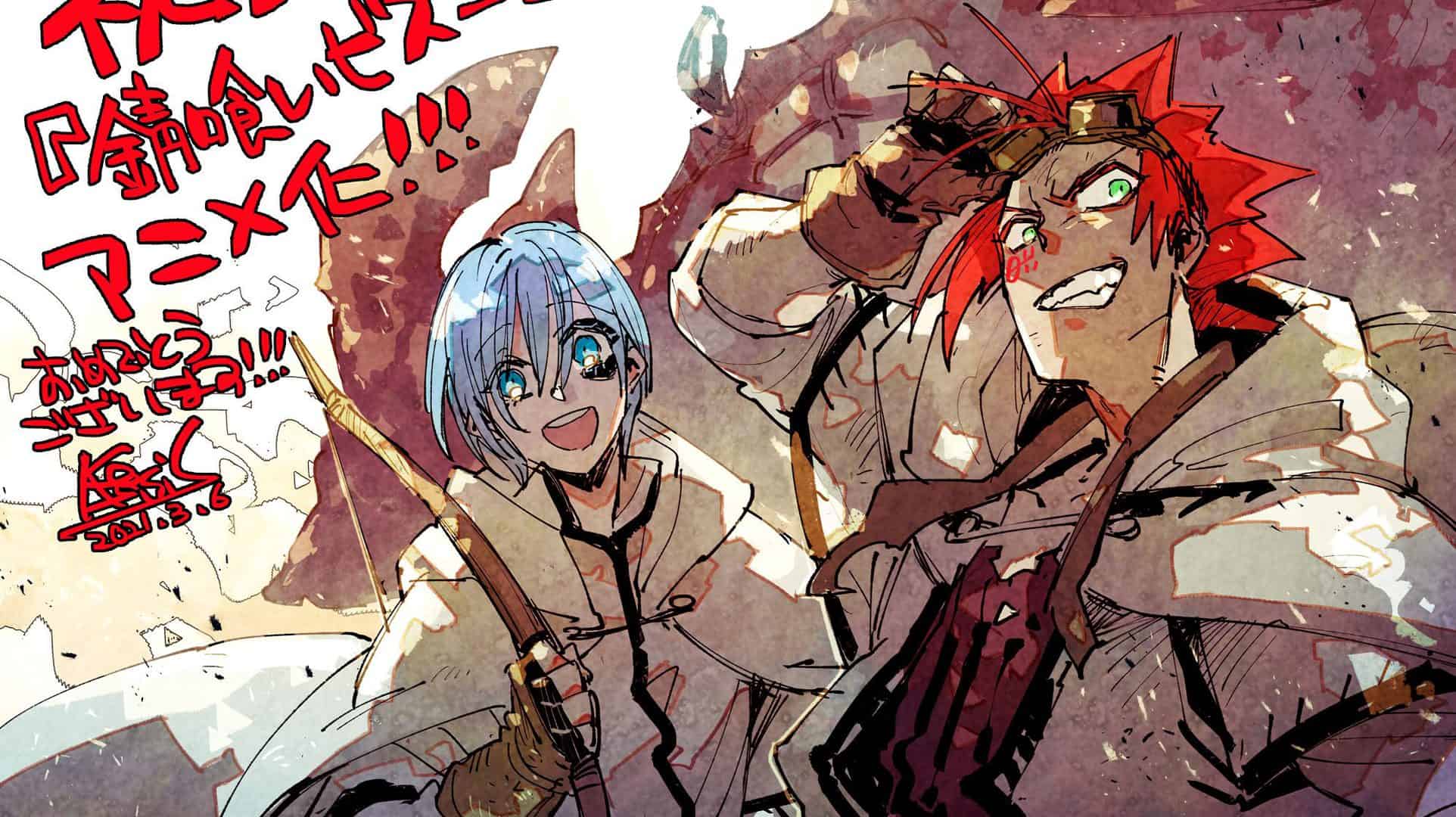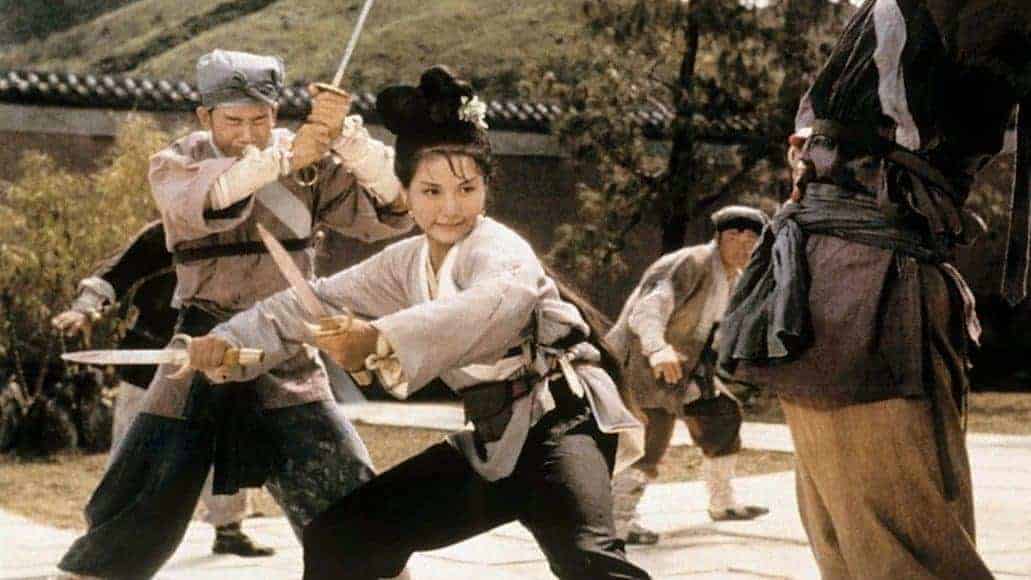An influence to filmmakers such as Shohei Imamura, who referred to him as “my teacher,” YuzoKawashima is the missing link that connects the films of early Japanese cinema to that of the second half of the twentieth century. Known for his tragicomic productions, Kawashima is unfortunately a forgotten name outside his home country, where many of his works are held in high regard. “Hungry Soul” (1956) is a typical film from the director, one that deals with a thematic content commonly found in his filmography.
Two subplots, connected through relationship and acquaintance amongst the characters who lead them, form the crux of the story. Kawashima ensures the audience's knowledge of two plots and the characters in the very first scene of the movie. A patient, having received hysterectomy, recovers in a hospital room, and is visited by two of her acquaintances: Mayumi and Reiko. The conversation is, at first, intimate, and the inherent pain of womanhood is discussed, but soon the characters move their thoughts onto other subjects.
Reiko is a young woman married to a businessman. With a massive age difference of 23 years between the married couple, differences are bound to exist. However, in this case, differences transform into abuse. Naokichi Shiba, the husband, never tries to understand her wife's situation, and torments her to a degree that to the outsider's eye, she seems to be a mistress instead of a wife. In midst of this unhealthy relationship comes Retsuto Tachibana, a businessman who is a rival to Mr. Shiba. Tachibana, a younger and apparently more understanding individual, increasingly falls in love with Reiko. On the other hand is the story of Mayumi, a widow. With two children on the verge of growing up into adults, she works hard as a businesswoman, to ensure comfort for her family, even to conventionally unwomanly businesses she never thinks of avoidance. In such an important time for herself and her family, she enters into a relationship of sorts with Masaharu Shimotsuma, the best friend of her late husband Mr. Oguchi, and therefore, a family friend.
Hungry are the souls of Reiko and Mayumi. The latter has not experienced the beauty of love for years, and for the former, love has never been a phenomenon based on reality, but a distant object of observation. Kawashima captures Japan on the verge of transformation. Skyscrapers and television towers shape the cityscape even as Japanese-style buildings are still widely in existence. Kimono-wearing women walk the same road as skirt-wearing women. In this delicate meeting ground of tradition and modernity, society is at its most volatile. Accepting the ways of the West, they drink beer and satisfy their lust at love hotels. However, patriarchy refuses to subside. The life of most Japanese women is still based on the same old routine, where each meeting with a non-related male is observed and analysed with an air of contempt.

In a society where women are categorically suppressed, it is hard for Reiko and Mayumi to simply flow with their heart's desire. For Reiko, Tachibana's attraction for her is a surprise, and later, a thrill. Each word of Tachibana, full of sympathy towards her painstaking condition, hits hard on the young woman. Reiko begins to contemplate her immaturity leading her to the unhappy marriage. She even gathers the courage to discuss it with a relation. Mayumi is in a much more awkward situation. Her children are in such an age group where they understand her affair to some degree, with different reactions. The older has a threatening aspect to his response, and the retaliation of the younger is a blend of lack of comfortability and a dose of depression.
Selfishness exists in the understanding men as well, and Tachibana even certifies himself as one. He is, in all probability, no better than Shiba in his treatment of women. He is a man with many lovers, in other words, a playboy. However, his approach for Reiko creates some hope for a change in his ways. Shimotsuma is no different. He is a selfish man who totally negates any moral responsibility towards a wife on deathbed, and travels across Japan to meet and gain Mayumi. More than anything, the duo are chasers: towards love and lust. They are hungry as well, in their own ways. While the female duo seems to be hungry out of necessity, the male duo are displayers of gulosity. Are Tachibana and Shimotsuma the respective answers to the women's misery? This is an important question that is repeatedly hinted in the narrative.
Tenderness is the centerpiece of “Hungry Soul.” Even as questions arise about the capabilities of the two men in play, they remain integral for the feeding of hungry souls. Riichiro Manabe's score fascinates the audience in a musical reflection of said tenderness, where passion cannot succeed in the all-seeing eye of society. The impeccable nature of framing of each scene bonds well with the art direction, essential to display a nation withstanding the winds of change. Yukiko Todoroki is the star of the show, although Yoko Minamida and Tatsuya Mihashi succeed to impress as well.
“Hungry Soul” may remind one of “In The Mood For Love,” in its stylish, artful depiction of lack of fulfillment for souls, although Kawashima's style is more straightforward in its way.















